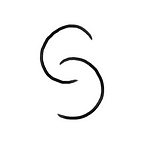Is Your Life Really Yours?
By Nina Lee Bennett
About two years ago, I downloaded a free application to track my period. A couple of months later, I realized that I was seeing sponsored content on my social media based on my cycle. Pregnancy tests and baby products around my ovulation; sanitary pads and tampons around my bleeding days. Some months later, I installed a dating app and the next time I logged into my social media accounts, I received ads for competitive dating apps and articles on the secrets to a successful relationship.
I felt very annoyed by these “coincidences”, so I decided to check my social media accounts and my browsers. I was shocked to realize how much information I had unconsciously provided my network and data collectors with, just by pushing two buttons: search and upload.
I felt exposed. I felt my privacy had been breached. That, even though I had shared this information voluntarily, an ethical line had been crossed.
But to be honest, during the 4G era, is the term “private life” even applicable?
And if overexposure is a given in the contemporary world, I wondered, how can we use it to our advantage?
Nowadays, every generation uses technology and social media at a different frequency and for a different purpose. Our youth–in contrast to previous generations–are growing up in an ultra-connected world where almost everything is online. And even though our everyday lives are bombarded by targeted content, unrealistic bodies and exuberant expectations, at the end of the day, it is us who decides what to read, what to share, where to post, how to search.
And that is exactly why we need to talk about authentic expression and self-protection more often when on social media and the internet.
Despite the social pressure among young people to frequently share aspects of their daily lives or create original content in order to achieve visibility, there is a need for this to be done in a respectful and inclusive manner. I believe valuing your life path and letting go of our need for constant comparison is the main goal when talking about authentic living. Establishing boundaries and being alert to potential dangers, are key components when it comes to self-protection.
We need to provide our kids with the tools necessary to evaluate the risks of a post or a video that will remain on the internet forever. We need to educate them on the power their comments can have. To take on the responsibility of expressing their opinion with pride and intention.
This nurturing relies on our ability to provide a safe environment where all the issues connected to the virtual presence of our kids can openly be discussed and, therefore, resolved. And while some technical aspects might be tough to address due to the generational gap, the core values of humanity can remain at the center of it all. People are feeling the same emotions they always have: love, anger, joy, shame, respect, betrayal, appreciation. We must teach our children to live up to their fullest potential without disrespecting or threatening another.
I believe it is our responsibility to teach our youth how to remain true and real–even online. Our goal should be to provide a guiding light in distinguishing fake from real. Because expressing our truth is crucial to our impact in this world. From the relationships we forge, to the work we do; the value we bring to the change we influence; these are the legacies we leave behind.
And even though the line between our private and public life has long faded, and our personal information must be registered in hundreds of different databases, we need to embrace the opportunity that this new era is offering us. The opportunity to lift the veil of perfection and make honest conduct the norm. The unique opportunity to use overexposure to promote positive change, to open up about once-taboo subjects, to break cultural barriers, to educate by example, to inspire and to be inspired.
And maybe in this way, a life not owned by us will be owned by many, used by many, be an influence to and even change many. From my perspective, I can only see this as an ethical reward for showing the world the real you.
Is Your Life Really Yours? was originally published on My Sex Bio’s blog on February 17, 2020.
To support our work at My Sex Bio and get your awesome hands at awesome perks, check our Patreon page: I want to support sex ed — Patreon
For as little as $3/month, you can support content creators, sex educators, sensual artists, and our mission to empower people with sex education. ♥️
You can also subscribe to the very awesome and very sex-teresting My Sex Bio newsletter here: Ooh yes, sign me up!
